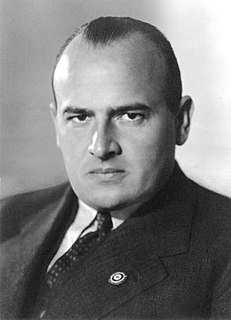A Quote by Emily Dickinson
After great pain, a formal feeling comes. The Nerves sit ceremonious, like tombs.
Related Quotes
After great pain, a formal feeling comes — The Nerves sit ceremonious, like Tombs — The stiff Heart questions was it He, that bore, And Yesterday, or Centuries before? The Feet, mechanical, go round — Of Ground, or Air, or Ought — A Wooden way Regardless grown, A Quartz contentment, like a stone — This is the Hour of Lead — Remembered, if outlived, As Freezing persons, recollect the Snow — First — Chill — then Stupor — then the letting go —
In our most Puritan of society, gambling-like other pleasures-is either taxed, restricted to certain hours, or forbidden altogether. Yet the impulse to gamble remains an eternal aspect of the irrationality of man. It finds outlets in business, war, politics, in the formal overtures of the gambling casinos, and in the less ceremonious exchanges among individuals of differing opinions.
Jesus, I wondered, what do you do with pain so bad it has no redeeming value? It cannot even be alchemized into art, into words, into something you can chalk up to an interesting experience because the pain itself, its intensity, is so great that it has woven itself into your system so deeply that there is no way to objectify or push it outside or find its beauty within. That is the pain I’m feeling now. Its so bad, its useless. The only lesson I will ever derive from this pain is how bad pain can be.
The only way to be a champion is by going through these forced reps and the torture and pain. That's way I call it the torture routine. Because it's like forced torture. Torturing my body. What helps me is to think of this pain as pleasure. Pain makes me grow. Growing is what I want. Therefore, for me pain is pleasure. And so when I am experiencing pain I'm in heaven. It's great. People suggest this is masochistic. But they're wrong. I like pain for a particular reason. I don't like needle's stuck in my arm. But I do like the pain that is necessary to be a champion.
Music expresses feeling, that is to say, gives shape and habitation to feeling, not in space but in time. To the extent that music has a history that is more than a history of its formal evolution, our feelings must have a history too. Perhaps certain qualities of feeling that found expression in music can be recorded by being notated on paper, have become so remote that we can no longer inhabit them as feelings, can get a grasp of them only after long training in the history and philosophy of music, the philosophical history of music, the history of music as a history of the feeling soul.
The nerves of the skin send pain signals to the brain to warn us of the danger from and impending injury. In the case of self-inflicted wounding, this pain acts as the body's own defense mechanism to stop one from proceeding in the effort at physical injury. If a person proceeds despite the pain, that means that he or she is motivated by something stronger than the pain, something that makes him or her capable of ignoring or enduring it.





































